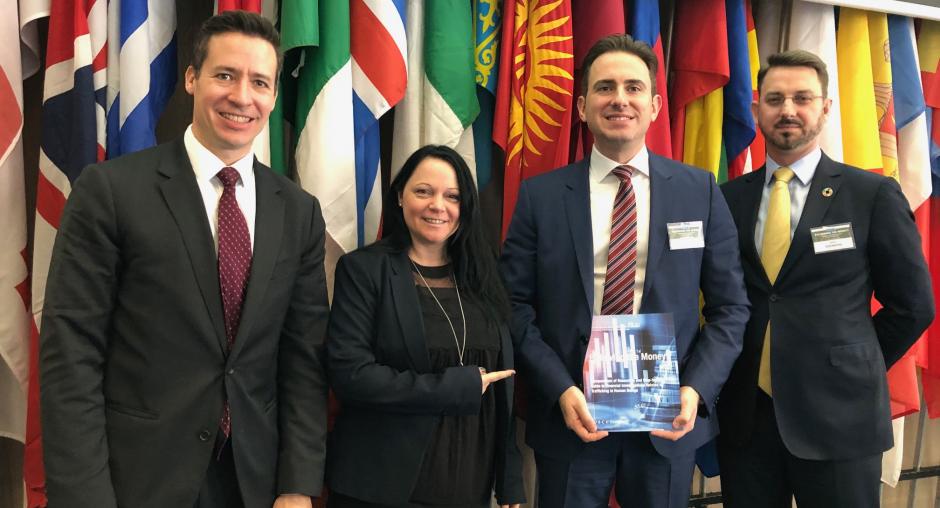“Following the money”: OSCE presents groundbreaking resource and guide for financial investigators to support countering human trafficking efforts

VIENNA, 11 November 2019 – Human trafficking is at its core a financially motivated crime, and yet anti-trafficking efforts in the area of financial investigations are falling short across the OSCE region. In response to this, the Office of the OSCE Special Representative and Co-ordinator for Combating Trafficking in Human Beings presented today a groundbreaking compendium of resources for financial investigators based on a review of publications across the globe together with a practical step-by-step guide.
The aim is to give practitioners across the OSCE region, in the private and public sectors, a single-source tool for guiding their work.
During the launch event, two panels of leading global experts discussed the role of financial investigations in combating human trafficking and highlighted the most interesting aspects of this new resource.
“Human trafficking is a tremendously profitable crime - it is time that we hit traffickers where it hurts by investigating, and seizing their cash flows,” said Valiant Richey, OSCE Special Representative for Combating Trafficking in Human Beings. “We know that good work has been done on financial investigations; however, many of these efforts are isolated and fragmented.”
Through its research, the OSCE Office of the Special Representative for Combating Trafficking in Human Beings discovered that, while there is an abundance of quality intelligence on financial investigations globally, this intelligence remains disjointed and under-utilized. This new publication addresses this shortcoming by centralizing information, identifying resources and good practices.
Timea Nagy Payne, Commissioner for the Liechtenstein Initiative for a Financial Sector Commission on Modern Slavery and Human Trafficking and a human trafficking survivor, added: "I have a dream, to teach financial institutions not to take money from traffickers."
According to the International Labour Organization, human trafficking generates profits of an estimated $150 billion USD each year from the exploitation of people.
“Modern slavery represents a tragic market failure that leaves us all worse off. We all miss out on the lost potential of victims,” highlighted James Cockayne, Director of the Centre for Policy Research at the United Nations University and Head of Secretariat of the Liechtenstein Initiative.
The “Following the Money” resource categorizes more than 600 indicators and typologies of human trafficking and provides a guide outlining a list of practical steps to establish a framework for successful financial investigations.
